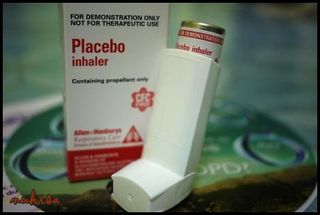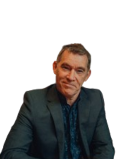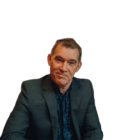Placebo
When the Mind Heals the Body
The puzzle of the placebo effect.
Posted February 16, 2020 Reviewed by Daniel Lyons M.A.

In October 2018, the BBC broadcast a fascinating documentary which followed the progress of an experiment with placebo treatment. Under the supervision of researchers from the University of Oxford, 117 people who suffered from chronic severe back pain were asked to take part in a trial for a powerful new pain killer. They were told that some members of the group would be given a placebo. However, in reality they all received a placebo — pills containing ground-up rice powder, to be precise. There was no powerful new painkiller.
All 117 participants took the rice powder tablets daily for a month and almost half reported a medically significant improvement in their condition. Most of them had tried a variety of painkillers before, without much success, but the rice powder tablets were remarkably beneficial. A 71-year-old man was confined to a wheelchair because of his pain, and took morphine regularly. But after a month of the placebo treatment, his pain had disappeared and he was able to stand up and walk around. As he told the presenter of the programme, “Everything has been fine. I woke up one morning and thought I haven't got a twinge in my back’."
Other participants reported that they were able to start work again, that they could walk without pain, walk up the stairs of their house again, and felt they had much more energy.
As a result, the participants were shocked and disappointed when told that they had ‘only’ been taking rice powder tablets. But they were asked if they wanted to continue taking the tablets, despite knowing that they were only a placebo. Remarkably, 70 percent of those who continued taking the pills reported that the improvement in their condition was sustained (1).
The History of Placebos
The placebo effect is so familiar nowadays that it takes new experiments like the one I’ve described above to remind us of how strange it really is. Isn't it bizarre that pain relief and healing can take place without any actual treatment? Isn’t bizarre that pronounced physiological effects can occur without any real physiological intervention? I believe that the placebo effect has become so normal that we don't grasp its full implications, particularly in terms of the relationship between the mind and the body.
A vast array of different conditions have been reported as benefitting from placebos, including acne, Crohn’s disease, epilepsy, erectile dysfunction, ulcers, multiple sclerosis, osteoarthritis, rheumatism, Parkinsons’s disease, and colitis. At first, scientists believed that the placebo effect was just a subjective phenomenon — in other words, that gullible people were just imagining that their symptoms had improved, without any real physiological changes taking place. But it eventually became apparent that this wasn’t the case. Even though patients were receiving inert substances with no physiological effects, real, measurable physiological changes were occurring.
Later, brain-imaging technology verified the physiological effects of placebos. Studies found that, when taken as painkillers, placebos decreased neurological activity related to pain, and made use of many of the same neurotransmitters and neural pathways as opioids and marijuana. In a similar way, researchers found that, when taken by patients with Parkinson’s disease, placebos could cause the release of dopamine.
Other studies have shown similar neurological changes relating to depression, anxiety and fatigue, and other physiological changes such as blood pressure, heart rate and the activation of the immune system. Studies of the use of placebos in comparison to anti-depressants have suggested that much of the latter's effect is due to them working as a placebo. A 2008 meta-analysis showed that no significant difference between leading antidepressants and placebos. (2) In a 2018 study, antidepressants faired slightly better, but their effect was still only found to be “mostly modest’ compared to placebos (3).
As the BBC documentary illustrates, placebos can still work even when a patient knows that they are taking them. In a study published in 2010, the Harvard Professor of Medicine Ted Kaptchuk compared two groups of patients suffering from Irritable Bowel Syndrome. While one group didn’t receive any treatment, the others were given placebos. However, unlike most studies, members of the second group were told that they were taking fake drugs—to emphasise the point, the bottles of pills were labelled “placebo pills.” Kaptchuk was shocked to find that, despite this, the members of the second group reported significant relief of symptoms. (4)
Implications of the Placebo Effect
Researchers have identified some aspects of the placebo effect and found that factors such as conditioning, expectancy, personality, and patient-physician relationship have some bearing on it. There may also be some connection to reward pathways in the brain, such as the μ-opioid and dopamine pathways. Nevertheless, the underlying causes of placebo effect are still mysterious. In the words of a recent article, “efforts to characterize this phenomenon are in primitive stages.” Ted Kaptchuk has said that “I’m not sure we will ever explain” the placebo effect, highlighting that “there is something ultimately intangible about all healing.” (5)
In my view, the major implication is that the conventional view of the relationship between the mind and the brain may be wrong. In materialistic science, the mind is seen as a by-product of the brain, a kind of shadow that is cast by neurological processes. But if this is really the case, how is it possible for mental processes to influence the brain and the body in such a powerful way? This would be like saying that the images on a computer screen can affect the workings of the computer’s hard drive.
As I have suggested in my recent book Spiritual Science, perhaps the mind is more than just the product of matter. Perhaps the mind is actually primary to matter. This would help to explain why mental intentions and beliefs can have such a powerful effect on the material form and functioning of our bodies. The placebo effect only begins to make sense from this perspective. It is the only feasible way of explaining the phenomenon.
In other words, we may have to “flip” our normal assumption about the causal relationship between mind and matter. Perhaps mind does not emerge from matter, but matter from mind. Our mind (or consciousness) may be an ‘influx’ of a fundamental universal consciousness which is primary to matter. This may seem improbable - but surely less improbable than the notion that a mere shadow can have a powerful influence on the object it is a shadow of.
Learn more at stevenmtaylor.com




